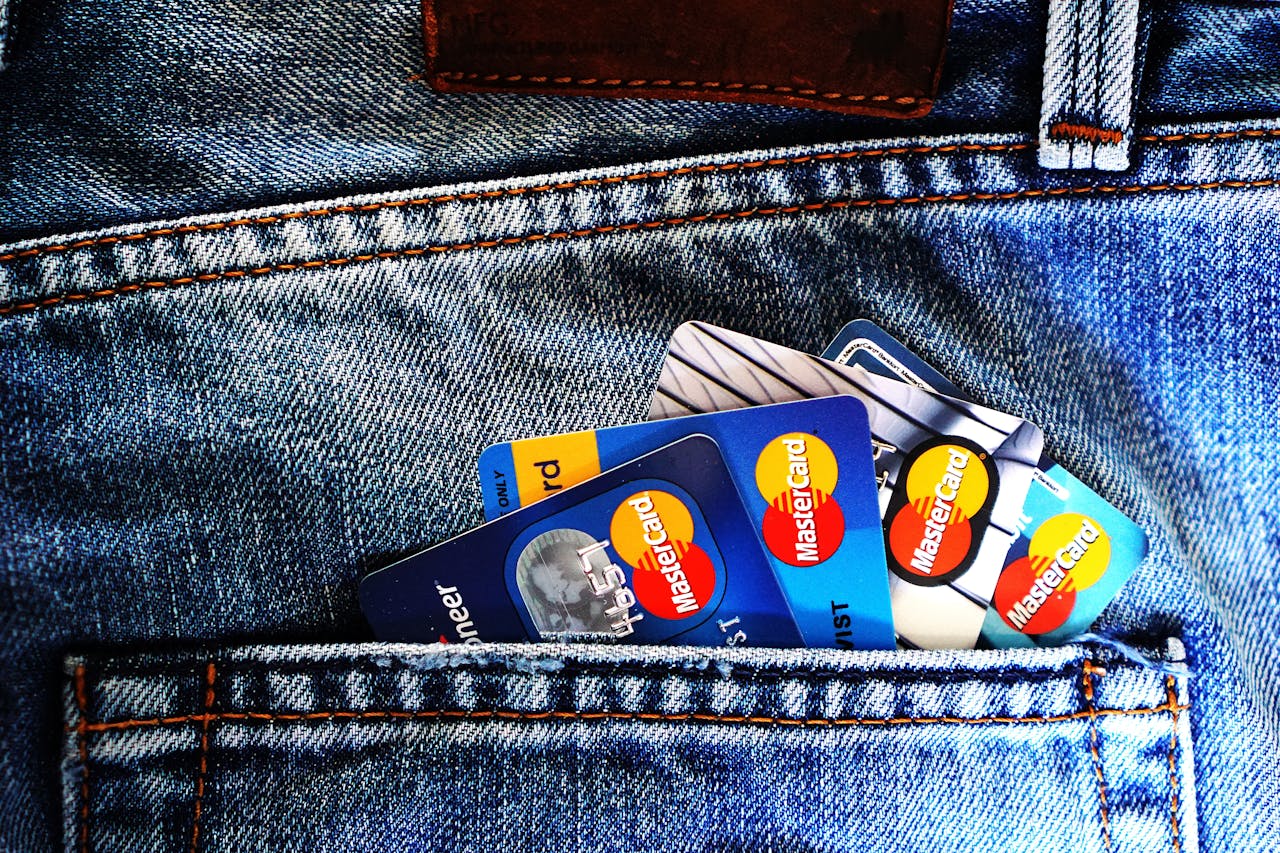
It’s not always the case that your first credit card will remain your go-to card throughout your lifetime. There are many reasons it might be in your best interest to switch credit cards at some point.
Perhaps you’re looking for better rewards, lower interest rates, or improved benefits that better align with your current financial goals. Maybe your spending habits have changed, and your current card no longer offers the perks that once made it valuable. Whatever the reason, a new credit card can provide opportunities to save money and enjoy features that align better with your current lifestyle.
Of course, the choice to make this switch isn’t one you should make lightly. It’s not just about finding a card with appealing offers; you also need to evaluate how well your new card fits your financial needs and goals.
Ideally, you’ll want to do some meticulous research and compare various options to ensure that you decide on a card that promises you the most value and convenience. Once you understand your priorities and financial situation, you can start working on your new credit card application with confidence that you’ve made the right choice.
With that in mind, here are a few key considerations and factors for switching credit cards:
1) Rewards and Benefits
The rewards and benefits that certain credit cards offer are often what allow them to edge out other modes of payment for consumers. But these perks need to match your spending habits well if you want to make the most of them.
When considering a new credit card, evaluate the type and value of the rewards it offers. These rewards should complement your lifestyle, whether they come in the form of cashback, points, or miles. You may also want to look at extra benefits that will come with your card, like travel insurance, purchase protection, and extended warranties.
Consumers in the Philippines who are looking for an unbeatable rewards program will find that the Maya Landers Cashback Everywhere Credit Card is one of their best new options. This card also functions as a Landers Superstore membership card and promises exclusive perks like generous discounts and premium grocery shopping options. In addition, you’ll get the opportunity to earn cashback on any and all purchases you make with the card. You’ll enjoy a rate of up to 5% for transactions at Landers, 2% for those at restaurants and other dining establishments, and 1% everywhere else. This means that you’ll be earning rewards anywhere you choose to shop and use the card.
2) Partnerships and Promotions
Many credit cards partner with airlines, hotels, and retailers to offer enhanced value through exclusive deals and promotions. These partnerships can yield substantial savings and benefits, particularly if you frequently shop with these partners or travel often. It’s worth exploring which cards have affiliations that align with your spending patterns, as these can boost the overall value you receive from your card.
3) Introductory Offers and Sign-Up Bonuses
Credit card providers frequently want to sweeten the deal for newcomers exploring their products and services. Some, for instance, provide introductory offers like 0% interest on purchases or balance transfers for a specified period. These can be incredibly beneficial if you have large expenses coming up or existing debt to consolidate. Just make sure you understand the terms and conditions, including how long the introductory rate lasts and what the rate will be afterward.
Sign-up bonuses can also provide a substantial initial boost in rewards. To unlock these bonuses, you’ll often need to meet certain spending requirements within a certain timeframe, such as earning a large amount of points, miles, or cashback after spending a designated amount within the first few months. Before you commit, double-check that these spending thresholds are realistic and achievable for you without you needing to strain your budget. A well-planned approach to earning sign-up bonuses can substantially boost the value you get from a new credit card.
When you switch credit cards, it’s not just your purchases that change — any subscriptions, direct debits or recurring payments linked to your old card must be updated. That includes streaming services, utilities, insurance premiums or even automated payments set up for convenience. In this era of digital convenience, many users also employ sophisticated systems like an automated bot software to manage repetitive financial tasks—from tracking spending patterns to executing scheduled payments. If you’re using such tools, make sure they’re linked to your new card to avoid missed payments, duplicated charges or service interruptions. Updating these links ahead of your switch ensures your transition is smooth and your payments stay on schedule.
4) Interest Rates
A lower interest rate can save you money, especially if you occasionally carry a balance on your credit card. Don’t skip out on comparing the annual percentage rates (APR) of your current card with those of potential new cards.
Consider both the purchase APR and any promotional APRs that might apply. Even a small difference in interest rates can have a big impact over time, as it will reduce the overall cost of borrowing and help you manage your finances more effectively.
5) Fees
Fees can quickly add up and eat into the benefits of any credit card. Pay close attention to the various fees a potential new card might charge, which can include annual fees, balance transfer fees, foreign transaction fees, and late payment fees.
Weigh these fees against the card’s benefits and rewards to determine if they’re justified. In some cases, the perks and rewards may outweigh the costs, but you’ll need to be fully aware of what you’re signing up for.
6) Impact on Your Credit Score
Applying for a new credit card can affect your credit score in several ways. A new application typically results in a hard inquiry, which can temporarily lower your score. In addition, opening a new account can impact the average age of your credit accounts, a factor in your credit history length.
However, a new card can also positively affect your credit utilization ratio if it increases your total available credit. Take time to study and understand these dynamics to manage your credit health more effectively and responsibly.
7) Upcoming Expenses
Your plans for significant upcoming expenses can—and should—greatly influence your decision to switch credit cards. A new credit card can offer strategic advantages when it comes to paying for a planned vacation, a major home renovation, or other large purchases.
Look for cards that provide 0% introductory APR on purchases, all so that you can finance big-ticket items without immediate interest charges. Try to align your spending with a new card’s rewards program to maximize the benefits you receive.
The switch to a new credit card can take you that much closer to your financial goals—as long as you carefully consider the various factors involved. Evaluate your options thoroughly, and you should have no trouble finding a card that supports healthy spending habits and enhances your overall financial well-being. Take your time shopping around for the best card program, research diligently, and choose wisely to make the most out of the big switch.
Related Articles:
– 4 Reasons to Shop for Credit Cards with Good Rewards Programs
– 10 Things to Know Before You Retire
– Effective Tax Management: A Guide for Freelancers and Small Businesses
– How to Start a Blog – 10 Super Easy Steps + Bonus Tips
– Fund Transfer 101: What’s the Difference Between PESONet and InstaPay

